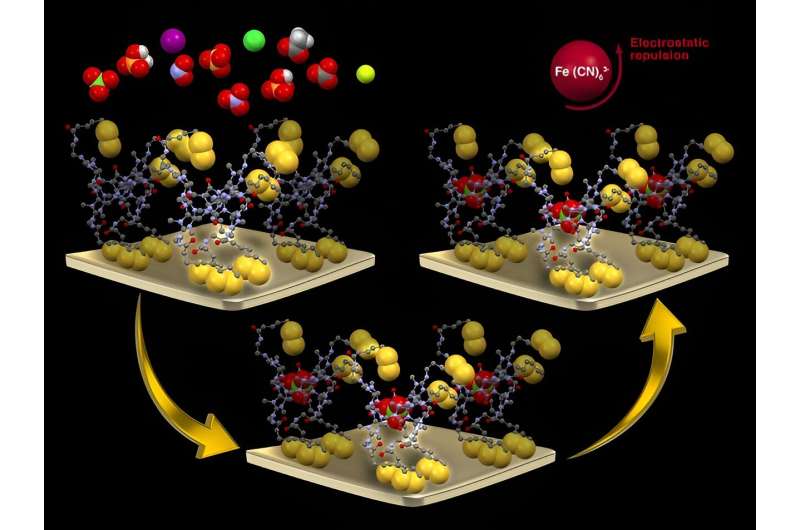This article has been reviewed according to Science X's editorial process and policies. Editors have highlighted the following attributes while ensuring the content's credibility:
fact-checked
peer-reviewed publication
trusted source
proofread
New sensor detects chemicals that impair thyroid gland

In a study conducted at the University of Twente, Technion-Israel Institute of Technology and the Open University of Israel, researchers have developed a novel approach to address the environmental challenges posed by perchlorate salts, which have been identified as persistent pollutants with potential impacts on human health.
The researchers published their findings in an article titled "Selective Perchlorate Sensing Using Electrochemical Impedance Spectroscopy with Self-Assembled Monolayers of semiaza-Bambusurils," in the journal Chemistry—A European Journal.
Perchlorate salts are a type of anion—slightly negatively charged molecules—which have raised concerns due to their ability to interfere with the proper functioning of the thyroid gland, leading to hypothyroidism. These molecules are highly soluble in water, but difficult to detect. Therefore the researchers worked on developing a new material that can bind these perchlorate salts and send out a signal when they are detected.
Binding perchlorate salts
The researchers used a special anion receptor molecule that binds to a gold surface. They tried different side chains and found one that efficiently binds to perchlorate salts and detects them in various environments. "These findings provide a promising method for monitoring and addressing this environmental pollutant," says University of Twente researcher Jurriaan Huskens, one of the study's authors.
Besides the high selectivity towards perchlorates, the sensory device can be reused multiple times with potentially continuous, real-time perchlorate monitoring under flow conditions. As the researchers continue their work, they aim to broaden the scope of these sensing molecules, developing more selective and sensitive anion sensors.
More information: Raman Khurana et al, Selective Perchlorate Sensing Using Electrochemical Impedance Spectroscopy with Self‐Assembled Monolayers of semiaza‐Bambusurils, Chemistry—A European Journal (2023). DOI: 10.1002/chem.202302968
Journal information: Chemistry – A European Journal
Provided by University of Twente





















